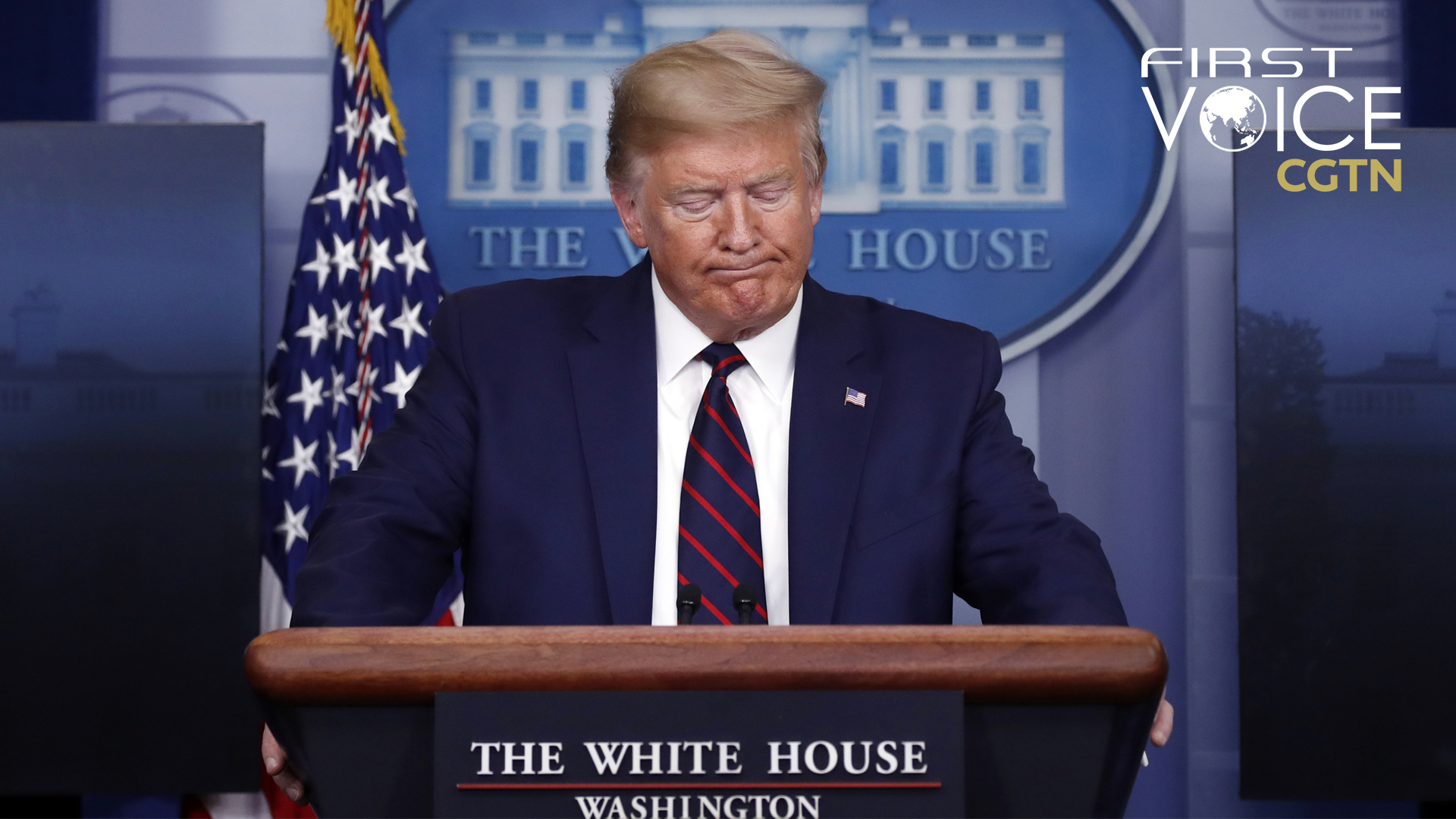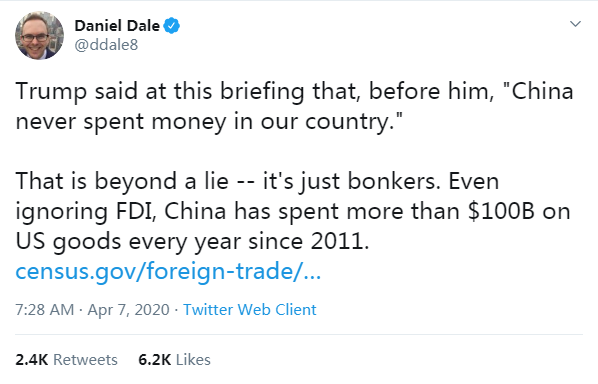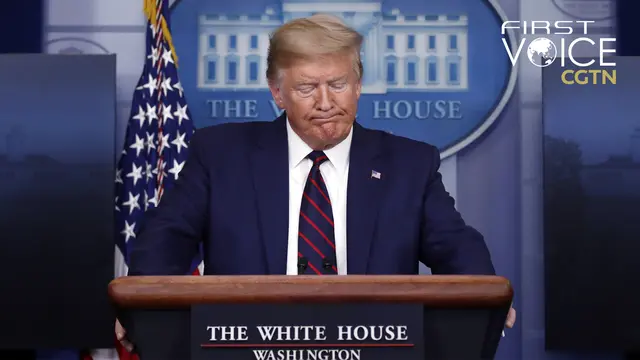
Editor's note : CGTN's First Voice provides instant commentary on breaking stories. The daily column clarifies emerging issues and better defines the news agenda, offering a Chinese perspective on the latest global events.
"For many, many years, China ate our lunch." As the world anticipates China-U.S. cooperation in dealing with the coronavirus pandemic, this is how U.S. President Donald Trump described the Asian country at Monday's press briefing.
Commenting on measures to protect American domestic economy from the coronavirus, Trump first bragged about the phase one deal that the world's largest two economies clinched this January as probably the "biggest ever made," and then endorsed China's efforts in fulfilling the deal that he believed would have huge impacts on American farmers and manufacturers.
The president continued to boast about the deal by bashing China for previous trade deficits and his predecessors for allowing them to happen. "We had people, in this position that I'm in right now, that allowed China to get away with absolute murder. And it should have never happened. But we are now dealing with China. We'll see what happens," Trump told the press.
It's true the U.S. has had huge trade deficits with China. But it is Washington's macroeconomic policy, not China, that is to blame. In the past decades, profit-driven American enterprises have been relocating their manufacturing bases to regions with cheap labor. In this context, it's not surprising price-sensitive consumers chose Chinese products over American counterparts.
Considering American goods' lack of competitiveness, even if the U.S. stopped importing from China, it would have to find alternatives from other countries. The U.S. imported several billions of U.S. dollars less in goods from China from January through May in 2019 than in the same period last year, but its overall trade deficit in goods still went up by 6.6 billion U.S. dollars, according to Xinhua.
In addition, in contrary to Trump's assertion that "China never spent money in our country," China, as CNN reporter Daniel Dale claimed on his Twitter account, has spent more than 100 billion U.S. dollars on American goods every year since 2011.

Sceenshot of Daniel Dale's tweet.
It's disappointing that as coronavirus is killing tens of thousands of people across the globe, the White House is still prioritizing politics over cooperation. The world's super power, which is supposed to shoulder responsibilities for the global anti-virus battle, must beware that the deadly disease is a humanitarian disaster, not a tool to boast political achievements.
This is time for global solidarity, not political calculations. At present, meeting the colossal need for medical supplies is a challenge facing all virus-hit countries. China is known as the world's factory. Since the outbreak, a slew of Chinese companies have transformed factories to make medical supplies, instilling more strength to China-made products. The world should never have underestimated China's role in this fight against coronavirus.
When China was hit by coronavirus, many countries offered help. China is happy to reciprocate. China is also still willing to assist the U.S. in dealing with the pandemic, in spite of previous unpleasant talks. China's help is out of humanitarian spirit, not "compensations for having eaten America's lunch."
So far, Chinese companies, according to Chinese Ambassador to the U.S. Cui Tiankai, have donated 1.5 million masks, 180,000 gloves, 200,000 test kits and many other medical supplies to the United States. Chinese factories have urgently resumed production and are operating in full swing to fulfill orders from the United States and other countries.
In the face of a common enemy, all countries must shelve political differences. This is not time for a blame game. The U.S. has already suffered a lot for wasting time politicizing the virus when it was first found in the country. The country should have learned a lesson and stop playing the political game.
Script writer: Liu Jianxi
(If you want to contribute and have specific expertise, please contact us at [email protected].)
 简体中文
简体中文

